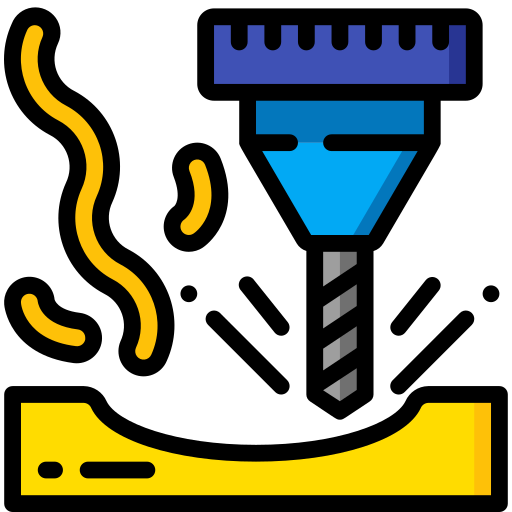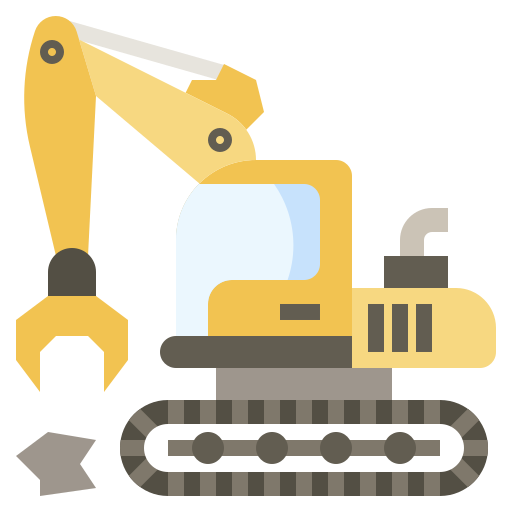CNC Machining In Steel
Both alloy steel and tool steel are steels. Alloy steel has good toughness with fatigue resistance and is inexpensive.
Tool steel is a metal alloy with exceptionally high hardness, stiffness, and abrasion resistance and is commonly used in the tool industry.
Custom Machining in Steel
Steel is a general term for iron alloys with carbon.
It is a cost-effective material and is easy to machine and weld.
In contrast to other machine shops, we can provide a full range of precision steel parts manufacturing services, including CNC machining, CNC turning and CNC milling.

CNC Milling in Steel

CNC Turning in Steel

Prototyping in Steel
Steel Grade & Properties
The properties of steel can be improved by adding different alloying elements, such as molybdenum and chromium, so there is a wide variety of grades of steel with different mechanical properties.
Commonly used steels include mild steel, carbon steel, alloy steel and tool steel.
Mild steel 1018
- Ultimate tensile strength(MPa):190 – 440
- Yield Strength (MPa):240 – 400
- Elongation(%):17 – 27 %
- Hardness (Brinell):76 HRB
Mild steel 1045
- Ultimate tensile strength(MPa):620 – 680
- Yield Strength (MPa):330 – 580
- Elongation(%):13 – 18 %
- Hardness (Brinell):84 HRB
Mild steel A36
- Ultimate tensile strength(MPa):400 – 550
- Yield Strength (MPa):250 – 290
- Elongation(%):22 %
- Hardness (Brinell):92 HRB
Carbon steel C45 | 1.0503
- Ultimate tensile strength(MPa):530-580
- Yield Strength (MPa):230-275
- Elongation(%):16 %
Steel S355J2 | 1.0570
- Ultimate tensile strength(MPa):450 – 680
- Yield Strength (MPa):275 – 355
- Elongation(%):14 %
Steel S235JR | 1.0038
- Ultimate tensile strength(MPa):340 – 520
- Yield Strength (MPa):175 – 235
- Elongation(%):21 – 26 %
Alloy steel 1.7131 | 16MnCr5
- Ultimate tensile strength(MPa):550 – 800
- Yield Strength (MPa):420
- Elongation(%):15 %
Alloy steel 1.7225 | 42CrMo4
- Ultimate tensile strength(MPa):600 – 860
- Yield Strength (MPa):400 – 720
- Elongation(%):10 %
Alloy steel 4140
- Ultimate tensile strength(MPa):915 – 1130
- Yield Strength (MPa):595 – 715
- Elongation(%):13.5 – 21.5 %
Alloy steel 4340
- Ultimate tensile strength(MPa):670 – 820
- Yield Strength (MPa):420 – 525
- Elongation(%):17 – 27 %
Alloy steel 1215
- Ultimate tensile strength(MPa):540
- Yield Strength (MPa):415
- Elongation(%):10 %
Tool steel O1
- Ultimate tensile strength(MPa):2040 – 2360
- Yield Strength (MPa):1800 – 2140
- Elongation(%):3.5 – 6.1 %
Tool steel D2 | 1.2379
- Ultimate tensile strength(MPa):2100 – 2500
- Yield Strength (MPa):1860 – 2290
- Elongation(%):13.7 – 15.2 %
Tool steel A3
- Ultimate tensile strength(MPa):1950 – 2380
- Yield Strength (MPa):2100
- Elongation(%):1 %
Tool steel S7
- Ultimate tensile strength(MPa):2100 – 2200
- Yield Strength (MPa):1950 – 2050
- Elongation(%):6.5 – 7.5 %
Industry Application for Steel
With its superior mechanical properties and superb cost performance, steel is one of the most widely used manufacturing materials, with applications in virtually every industry from construction to defense.

Commercial Goods

Medical Devices

Electrical

Aerospace

Automotive

Telecommunication

Construnction

Defense & Military

Machinery & Equipment
Surface Finish for Steel Parts
Steel is a material that is susceptible to be oxidized and It will rust over time, therefore the manufactured parts require proper surface finishing to avoid corrosion.
Electroplating: Carbon steel can be electroplated, such as galvanized or nickel plated, to improve its corrosion resistance.
The process of electroplating deposits a thin layer of metal film on the surface of the part.
Powder coating: Powder coating creates a protective layer of approximately 0.1-0.3 mm in thickness, which improves its corrosion resistance.
Carburizing: Carburization is used to improve its hardness and wear resistance.

Cost-saving Advice
Steel is one of the cheapest materials for metalworking. However, unnecessary machining costs should also be avoided.
- Material Selection: Steel is available in a wide range of grades and the appropriate material should be selected for the specific application. If high strength alloy steel is used where low carbon steel could have been used, it will obviously add additional cost.
- Optimize the setup: Material costs often account for only a small percentage of the total cost of a custom steel part, while machining costs account for a larger percentage, so it is more important to focus on optimizing the machining process in order to achieve a significant reduction in manufacturing costs by completing the entire machining process with as few setups as possible.

